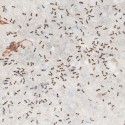7 Proven Tension Headache Relief Strategies
Most people occasionally experience tension headaches.
They are more common than just about any other ailment.
That is unfortunate because most tension headaches are avoidable.
While there are many types of headaches, the typical tension headache is easy to treat naturally.
What is more important, preventing tension is also something that is easy to do.
Understanding what causes tension headaches is the key to treating and preventing them.
We will explore the basics of what causes this type of problem, how to treat them naturally and ways you can prevent one from occurring.
You will learn several safe, easy and effective methods for easing the pain associated with tension.
What are Tension Headaches?
Almost anyone can get a tension headache, regardless of your age or health.
In addition to just the occasional pain of this type of ailment, over 40 million people in the US also suffer from chronic, recurring tension headaches, including over nine million children and teens.
This type of headache is the most common form, and most people experience mild to moderate pain.
Symptoms of Tension Headaches
Most people who have a tension headache, have pain that radiates.
This pain can begin at the neck, eyes, the shoulders, or the back of the skull.
Many people feel like there is a tight band around the top of their head.
The tension in the shoulders and neck is common, as is throbbing or pressure.
Depending on the source of your headache, you may feel worse lying down.
Certain treatments work better for headaches caused by low blood sugar, changes in blood pressure, sinusitis and other triggers.
Therefore, paying attention to the cause of your headache will help you know best how to treat it.
While the average headache lasts a brief time, usually about an hour, many can linger for days.
Those who experience chronic headaches will need to find and minimize triggers to prevent recurring pain.
Cause of Tension Headaches
There are many common causes of tension headaches.
The name “tension headache” was initially applied, because it was believed they were caused solely by stress and tension in the muscles of the upper body, which produced pain.
However, we now know that several other factors can also cause tension headaches.
Dietary causes of tension headaches include dehydration, food allergies, eating certain food additives like MSG and certain nutritional deficiencies.
Problems in your diet that result in low blood sugar or digestive problems, like constipation, can also result in a tension headache.
Other causes include emotional stress, tension in the muscles of the neck, shoulders, or arms, misalignment of the spine, poor posture or TMJ.
You can also have a tension headache due to eye strain, a hormonal imbalance, fatigue or sinusitis.
If you get frequent tension headaches, you should pay close attention to what you eat, as well as other symptoms that could help you identify the cause of your pain.
Addressing the source of your headache will be the best way to treat it naturally.
Natural Treatments
We will start by addressing some of the dietary changes that can help treat, as well as prevent tension headaches.
Eating a healthy diet rich in nutrients is vital for your overall health, as well as for avoiding this type of ailment.
After discussing dietary remedies, we share other natural treatments that can be effective for treating the occasional tension headache, or that may help those with a more chronic version of this disorder.
Stay Hydrated
Perhaps the most common and easily preventable cause of tension headaches is dehydration.
Even mild dehydration can lead to headaches.
When the muscles in your shoulders, neck, and head do not contain enough water, they contract and tighten.
This leads to pain that causes your headache.
In addition, when you do not drink enough water, your body is not able to eliminate cellular waste efficiently.
This can cause muscle spasms and inflammation, which also lead to headaches.
Drinking plenty of water is an easy way to prevent all these conditions and will help to prevent a headache.
Start your day with a glass of water, then drink a glass at least every two hours for the rest of the day.
This will provide your body with enough hydration to prevent tension headaches, as well as perform all essential body functions.
Look Carefully at Your Diet
Identifying possible food sensitivities or allergies will also help you to treat and prevent tension headaches.
An elimination diet will help you find possible triggers, including gluten, dairy, preservatives, and other common allergens.
Talk with your doctor if you suspect a food allergy since they will be able to guide you through an elimination diet that is right for you.
Removing any allergens and intolerances from your diet will help, as will eating a healthy diet full of whole, plant-based foods.
Your body may be reacting negatively to preservatives, excess sugar or fat, or the lack of fiber common in the Standard American Diet (SAD).
Eating more whole foods that have important vitamins and minerals, will eliminate these triggers from your diet, as well as provide you with the nutrition you need to prevent deficiencies that can lead to headaches.
Some people also suffer from headaches due to low blood sugar.
Eating whole, plant-based foods also helps provide a steady, even supply of glucose, which can prevent spikes and dips to your sugar levels.
Address Nutritional Deficiencies
Several nutritional deficiencies can cause headaches.
The most important is the low levels of magnesium and B vitamins.
Magnesium is a common nutritional deficiency, and it plays a vital role in the nervous and muscular systems.
When you are stressed, your body uses a lot of magnesium.
Therefore, eating plenty of this mineral is critical for preventing headaches.
Magnesium helps to regulate blood flow to the brain, relieves muscle tension and helps to regulate serotonin.
Foods like caffeine and alcohol, as well as artificial sweeteners, can also trigger headaches, so also avoid these ingredients.
Many of the B vitamins are necessary for protecting against headaches.
These include B2, which is called riboflavin, B6, which is also known as pyridoxine, and B12.
These vitamins can all play a role in reducing tension headache symptoms.
You can take a B-complex supplement to prevent these pains, especially if you suffer from this frequently.
If you are looking for another supplement that could help reduce your tension headaches, you may want to consider Coenzyme Q10 (CoQ10).
This natural antioxidant can reduce the length, severity, and frequency of headaches, especially in those who have chronic headaches or migraines.
Try Herbal Treatments
There are several herbs that are known to reduce tension headaches, relieve the stress known to cause them and help you feel better faster.
Among these herbs are white willow bark, feverfew, ginkgo biloba, and butterbur.
When first introduced, aspirin was made from white willow bark, so it makes sense that this herbal treatment would still be used to treat headaches.
Taking 300 milligrams of white willow bark can relieve pain.
It also has fewer adverse effects on your liver and other organs as over-the-counter medications.
A biochemical called parthenolide is found in feverfew.
This compound is known to treat pain and help with headaches, as well as arthritis and other disorders.
By preventing the dilation of the blood vessels in your skull, this herbal treatment is effective at relieving the cause of many tension headaches.
Feverfew can also help you have fewer and less severe headaches.
Ginkgo biloba is another effective tension headache treatment, providing stimulation of the blood flow to your brain.
If you have a headache due to altitude sickness, gingko biloba is also an excellent choice.
Finally, butterbur can be used to relieve tension headache pain.
As a natural anti-inflammatory and anti-spasmodic, it is a natural and safe choice for treating this disorder.
Use Essential Oils
Using essential oils can help treat tension headaches in many ways.
Here are just a few favorites:
- Apply peppermint essential oil mixed with a carrier oil directly to your skin to relieve tension headache pain. Use it on your forehead, on your neck, or at your temples to promote blood flow, to enjoy a cooling effect that is comforting and to inhibit muscle contractions.
- Eucalyptus essential oil can help when your tension headache is caused by sinus pressure or if you have a cold. Inflamed sinuses are a leading cause of tension headaches, and you can reduce this irritation as well as relax your muscles to calm pain with eucalyptus.
- Finally, the lavender essential oil can help you decompress, relax and reduce your tension headache pain. Lavender relaxes muscles and reduces anxiety. It also calms muscles that could be in spasm and causing tension.
Use Acupressure
Acupressure is the process of applying pressure to various points on your body that correlate with specific body functions and muscle groups.
Applying slow, steady pressure to these points, can help treat your tension headaches effectively.
If you have a tension headache, along with sinus congestion or tired eyes, you can try point B2.
Find this by running your thumb along your eyebrow toward your nose.
Stop just past the end of your eyebrow, and press.
Another excellent spot for relieving tension headache pain is GB20, which is found on the back of your head, at the base of your skull.
You can press on either side of your spinal cord.
A final acupressure point for tension headaches is L14.
To find this point, make an L shape with your hand, then pinch the area between your thumb and index finger, directly in the middle of that webbing about a thumb’s width from the edge of your skin.
Other Natural and Effective Treatments
You can use cold compresses to reduce muscle spasms that could be causing your tension headache pain.
Apply them to the back of your neck or on your crown.
While applying these, sit or lay down and breathe deeply.
If you have a lot of tension in your neck and shoulders, applying a hot compress or heating pad to these areas can help loosen muscles that may be causing you pain.
Getting a massage or using an at-home massager can also help relax these muscles.
Your tension headaches may be due to poor posture, especially if you sit most of the day.
Work to improve your posture while sitting and standing to reduce your tension headache symptoms.
Be sure you are getting enough sleep.
Being overly tired can contribute significantly to tension headache symptoms.
Sleep deprivation also makes other triggers more likely to cause a headache.
The average person needs between seven and nine hours of sleep per night for maximum benefit.
Some people are affected by strong odors, perfumes, and other scents.
Avoid fragrances, cleaning products, and other substances with strong odors, since they can trigger tension headache pain.
Conclusion
If you are one of the over 40 million people who has regular tension headaches, finding ways to prevent and treat them naturally is essential for you.
A tension headache may only seem like a mild annoyance, but frequent or chronic pain can cause irritability, loss of patience, sleep loss and many other side effects.
Treating your tension headache means addressing the source of your tension, finding ways to relax and managing the dietary and lifestyle choices that could be making your symptoms worse or more frequent.
In addition to drinking more water and eating a healthier diet, you can also take supplements or use herbal treatments to address your tension headache pain.
Other common natural treatments for tension headaches include acupressure, essential oils, cold compresses, getting enough sleep and correcting poor posture.
Most tension headaches are mild and cause pain in the head, neck, or upper body.
They generally respond very well to treatment and resolve within a few hours.
If you experience frequent, chronic, or severe headaches, you should talk with your doctor about other possible causes and treatments for your tension headache pain.
FDA Compliance
The information on this website has not been evaluated by the Food & Drug Administration or any other medical body. We do not aim to diagnose, treat, cure or prevent any illness or disease. Information is shared for educational purposes only. You must consult your doctor before acting on any content on this website, especially if you are pregnant, nursing, taking medication, or have a medical condition.
HOW WOULD YOU RATE THIS ARTICLE?





